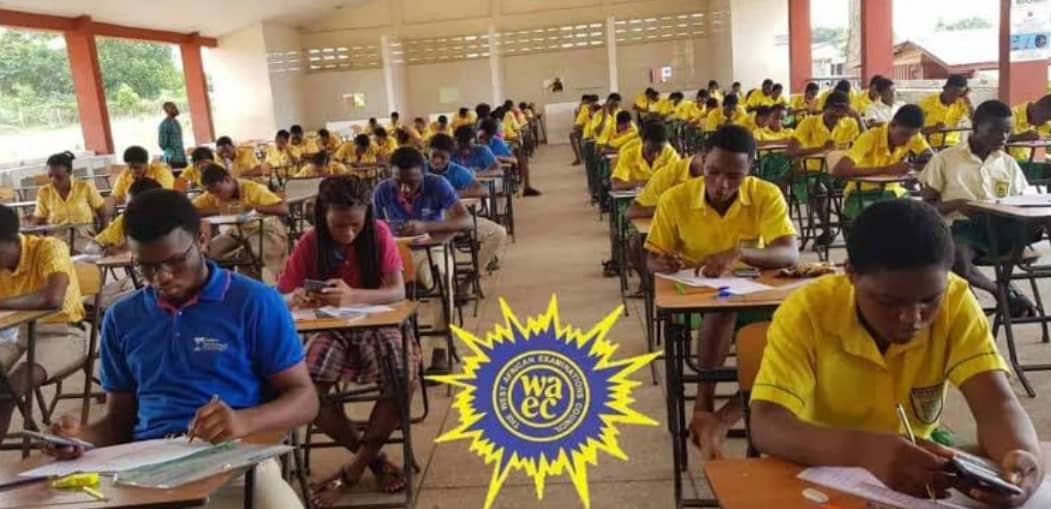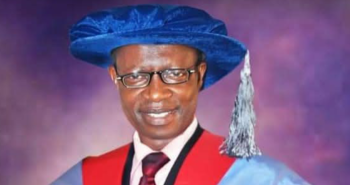Subscribe to the our newsletter to receive latest news straight to your inbox.
NANS vs WAEC: Understanding WAEC’s critical role, leadership
By Clifford Ejenavi The National Association of Nigerian Students (NANS) needs to deepen its understanding of the critical role being played by the West African Examinations Council (WAEC) and its Head of National Office (HNO), Dr. Amos Dangut, in shaping the nation’s education sector. As the foremost examining body in the West African sub-region, WAEC…

By Clifford Ejenavi
The National Association of Nigerian Students (NANS) needs to deepen its understanding of the critical role being played by the West African Examinations Council (WAEC) and its Head of National Office (HNO), Dr. Amos Dangut, in shaping the nation’s education sector.
As the foremost examining body in the West African sub-region, WAEC has, since its establishment in 1952, been entrusted with conducting credible assessments that determine students’ transition from secondary to tertiary education. Beyond organizing the West African Senior School Certificate Examination (WASSCE), the council also provides statistical data that guides educational policy formulation, curriculum review, and manpower planning in Nigeria.
Central to this mission is the Dr. Dangut, who serves as WAEC’s chief administrator in the country. Dr. Dangut oversees examination integrity, coordinates innovations such as digital registration and result verification, and ensures that Nigeria aligns with regional standards in education assessment. In recent years, Dr. Dangut has also been instrumental in addressing malpractice, improving candidates’ experience, and strengthening the Council’s global credibility.
Stakeholders believed that NANS, as the voice of Nigerian students, should engage more actively with WAEC to appreciate its contributions and challenges. Doing so, they argue, will help foster cooperation, curb misinformation, and ensure that students themselves become advocates for examination integrity. While others believed that since WAEC is not an agency of the government but an international institution, NANS shouldn’t overstretch their boundaries to avoid disrupting the operations of the Council.
By understanding the vital role WAEC and its leadership play, NANS can better represent the interests of its members, while also contributing to the ongoing efforts to improve Nigeria’s educational system and maintain its regional relevance.
The recent criticisms directed at the HNO by some members of NANS have raised concerns in the education sector. While students’ voices remain crucial in shaping policies and demanding accountability, it is important that such interventions are constructive, fair, and evidence-based.
WAEC, under the leadership of Dr. Dangut, has continued to uphold its mandate of conducting credible examinations across the country despite numerous challenges, including technical glitches, examination malpractice, and infrastructural limitations. Rather than resorting to personal attacks, stakeholders believe NANS should engage the Council in dialogue, proffer solutions, and partner in ensuring a transparent and efficient examination process.
WAEC remains one of the most credible regional examination bodies in Africa, with a long history of conducting standardized assessments that determine the academic future of millions of students. Any unwarranted attacks on its leadership or operations not only undermine public confidence in the institution but also risk distracting from genuine issues that require collaboration between students, policymakers, and the Council. Millions of Nigerian students depend on the credibility of its certificates for further education and employment opportunities locally and internationally.
Education analysts urge NANS to adopt a collaborative approach with WAEC, focusing on advocacy for improved examination logistics, student-friendly policies, and technological upgrades. Constructive criticism, they say, will yield more lasting results than confrontational tactics.
At a time when Nigeria needs stronger educational institutions, the focus should be on unity of purpose, dialogue, and collective responsibility. Both NANS and WAEC should work together to safeguard the integrity of examinations and uphold the aspirations of Nigerian students.
Recommended Articles
-
Sheriff Jnr Care Foundation to boost SMEs with cash support in Delta State
3 days ago66 views -
Minister, Senate restates commitment to bring lasting reform in tertiary education
11 months ago449 views -
LASU VC congratulates Prof. Makinde as new Crawford Varsity VC
3 months ago274 views -
BREAKING: LASU call off strike, resumes academic, social activities on Wednesday
2 months ago372 views -
LASU commiserates with family of student allegedly killed for ritual, demands justice
7 months ago347 views









